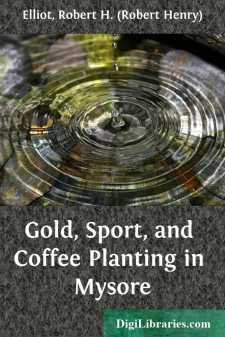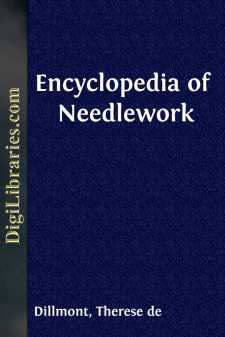Non-Classifiable
- Non-Classifiable 1768
Non-Classifiable Books
Sort by:
PREFACE 'The Past that is not overpast, But present here.' In a dusty, time-soiled packet of legal papers which had lain untouched for nigh upon two hundred years, the extraordinary history of Wilhelmine von Grävenitz is set forth in all the colourless reticence of official documents. And yet something of the thrill of the superstitious fear, and the virtuous disapproval of the lawyers who...
more...
by:
Helen Campbell
WOMEN WAGE-EARNERS; THEIR PAST, THEIR PRESENT, AND THEIR FUTURE. The one great question that to-day agitates the whole civilized world is an economic question. It is not the production but the distribution of wealth; in other words, the wages question,—the wages of men and women. Nowhere do we find any suggestion that capital and the landlord do not receive a quid pro quo. Instead, the whole labor...
more...
by:
Charles Darwin
My dear Lyell, I send a letter from Asa Gray to show how hotly the battle rages there. Also one from Wallace, very just in his remarks, though too laudatory and too modest, and how admirably free from envy or jealousy. He must be a good fellow. Perhaps I will enclose a letter from Thomson of Calcutta; not that it is much, but Hooker thinks so highly of him… Henslow informs me that Sedgwick...
more...
by:
Elbert Hubbard
RICHARD WAGNER Was ever work like mine created for no purpose? Am I a miserable egotist, possessed of stupid vanity? It matters not, but of this I feel positive; yes, as positive as that I live, and this is, my "Tristan and Isolde," with which I am now consumed, does not find its equal in the world's library of music. Oh, how I yearn to hear it; I am feverish; I am worn. Perhaps that...
more...
CHAPTER I. INTRODUCTORY.—PROGRESS IN MYSORE. As I now turn my thoughts back to the year 1855, when, being then in my eighteenth year, I sailed for India to seek my fortunes in the jungles of Mysore, it is difficult to believe that the journey is still the same, or that India is still the same country on the shores of which I landed so long ago. But after all, as a matter of fact, the journey is,...
more...
by:
John F. Runciman
INTRODUCTION It is now one hundred years since Richard Wagner was born, thirty since he died. In every land he has his monument in one shape or another; his music-dramas can be heard all the world over; all the ancient controversies as to their merits or demerits have died down. The Bayreuth theatre, the outward and visible sign of his inner greatness, has risen to the point of its most splendid glory...
more...
TO THE READER. The revolution of the 20th of March will form unquestionably the most remarkable episode in the life of Napoleon, so fertile as it is in supernatural events. It has not been my intention, to write the history of it: this noble task is above my powers: I have only attempted, to place Napoleon on the stage of action, and oppose his words, his deeds, and the truth, to the erroneous...
more...
I. The first sign of our approach to Lourdes was a vast wooden cross, crowning a pointed hill. We had been travelling all day, through the August sunlight, humming along the straight French roads beneath the endless avenues; now across a rich plain, with the road banked on either side to avert the spring torrents from the Pyrenees; now again mounting and descending a sudden shoulder of hill. A few...
more...
Plain Sewing. Many, on opening the Encyclopedia of needlework will be disposed to exclaim as they read the heading of this first section: What is the use of describing all the old well-known stitches, when machines have so nearly superseded the slower process of hand-sewing? To this our reply is that, of all kinds of needlework, Plain Sewing needs to be most thoroughly learned, as being the foundation...
more...
by:
Edward Lear
"HOW PLEASANT TO KNOW MR. LEAR!" "How pleasant to know Mr. Lear!"Who has written such volumes of stuff! Some think him ill-tempered and queer,But a few think him pleasant enough. His mind is concrete and fastidious,His nose is remarkably big; His visage is more or less hideous,His beard it resembles a wig. He has ears, and two eyes, and ten fingers,Leastways if you reckon two thumbs;...
more...











